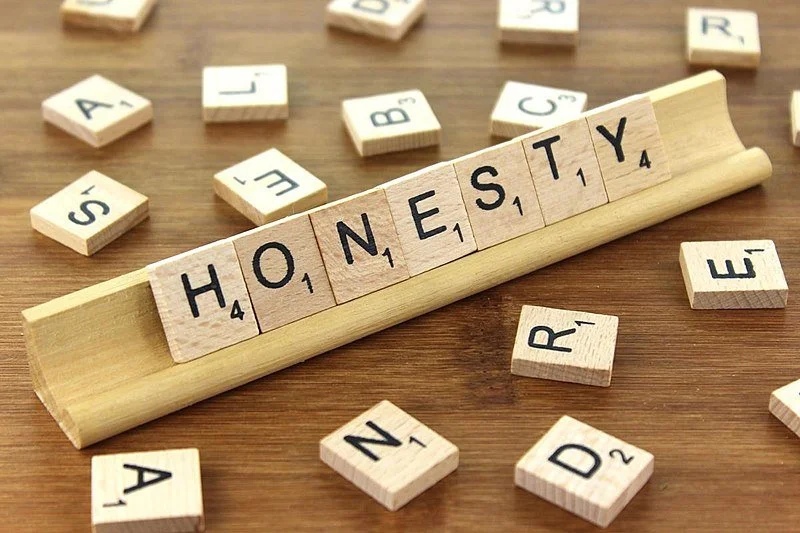Column: Are you Frank or Honest? The difference can be astounding
So what are more “honest” ways of communicating about disappointments and differences? Does it mean soft-peddling information, or beating-around-the-bush, instead of having the “courage” to speak the truth, to be direct, to say what’s-what?
Living Well
By Donna Henderson
In my visits with couples, “problems with communication” is the reason people most often give for deciding to seek consultation.
And while there are many factors involved in how communications can go wrong in individual relationships, understanding the difference between being “frank” and being “honest” is an important foundation for communication that leads to more closeness, instead of just widening distance.
“But aren’t ‘frankness’ and ‘honesty’ the same thing?” you might be wondering.
Far from it.
“Honesty” focuses on our own feelings (like sadness, anger, confusion, happiness, hopefulness, excitement, anxiety and fear) and our own behaviors, including our “thought behaviors:” the stories we tell ourselves about our feelings, and about “how things are.” Conversely, “frankness” generally involves blaming and/or judging the other person, as a way of avoiding (however unconsciously) the vulnerability that comes with actually being honest. “Frankness” is about what I think about you, not how I feel (and behave) inside me.
From the point of view of this definition, the phrase “brutally honest” really doesn’t make any sense anymore. “Honesty” is never brutal, since it doesn’t get involved in judgments about others; honesty is interested in taking responsibility for self.
So if you are having difficulty feeling understood by a family member, coworker, or friend, take a look at your own behavior first. Do you focus more on expressing yourself than you do on listening? Is your focus more, that is, on trying to be understood than to understand?
When someone expresses themselves to you, do you reply by giving opinions, advice, or otherwise making judgments about what is being said? (Newsflash: opinions and advice are both varieties of judgments). Do you express your own distress by accusing or placing blame (“You never want to spend time with me!”), instead of describing your actual feeling (“I miss you”)? In short, do you find yourself trying to “be honest” by statements that start with “I’m mad at you because you _________ !” Or “What’s wrong with you is __________!” Or maybe with one of the two classic accusations: “You always ___________!” and “You never ____________” ? (Newsflash number two: no one “always” and “never” does anything, so you’ve instantly undermined your credibility with this one).
If any of these sound like you, consider that you’ve been being very, very frank with your loved one…but maybe not yet honest: after all, there’s nothing in those phrases about you, at all.
So what are more “honest” ways of communicating about disappointments, differences, distance, and other relationship issues, according to these definitions? Does “honesty” just amount to “frankness ‘lite’”? Does it mean soft-peddling information, or beating-around-the-bush, instead of having the “courage” to speak the truth, to be direct, to say what’s-what?
Actually, the opposite: it takes much more courage (because it’s so much more vulnerable) to be direct and honest about our own feelings and reactions and judgements than to judge, blame and complain about the other person in the relationship.
Skeptical? Try out the following “honesty-speak” statements, imagining you are saying them to someone important to you who you are also angry at…and notice what it feels like inside.
“I’ve been feeling distance [or maybe ‘tension’ or some other feeling-quality] between us, and I’m not sure how to understand it— can you help?” (this statement makes an observation without making up a story about “why,” and invites conversation).
“It seems to me like I’ve been doing most of the household chores, and I’ve noticed myself starting to build up resentment about that, which tells me it’s time to talk.” (An observation that describes your own experience and your reaction to it, but which stops short of accusing the other person of not doing their share).
“To be honest, I’ve been privately judging/blaming you for my disappointment [or ‘pain,’ or ‘sadness’] about our communication for awhile now…” (Owns up to your blaming behavior, instead of simply…blaming).
If it feels uncomfortable to imagine actually speaking in this way, welcome to the world of genuine honesty in close-relationship communication!
While blaming, complaining, fault-finding and arguing can feel cathartic and satisfyingly self-righteous in the moment, consider whether these actually do anything to improve communication or closeness (Or, as Dr. Phil used to say, “How’s that workin’ for ya?”). Truly honest statements and questions like the ones above require that we own our own feelings and reactions…which naturally invites (without demanding) that others take ownership for theirs in turn. Thought experiment: imagine your response if your loved one approached you with one of the statements above.
And while most of us think we want to feel closer to the ones we love, fewer of us are as prepared as we may think we are for the vulnerability involved, and the courage it calls for, so we go about "communicating" in ways guaranteed to keep the other person at a safe emotional distance, rather than communicating in ways that actually invite them emotionally closer.
Not happy with the quality of communication with your loved ones? Take an honest look first at your own part, and make an honest assessment of your own real goals. If you'd rather be right than close (final newsflash: we don't get to have both; we have to choose), and find closeness a little too scary to actually invite it, then blaming, complaining, judging and demanding (all that “frank” talk) is the way to go. But if it’s genuine emotional intimacy you both want, try a little honesty.
It won't take long to find out if you're actually up to it.
Support Local News
Available to everyone. Funded by readers.




